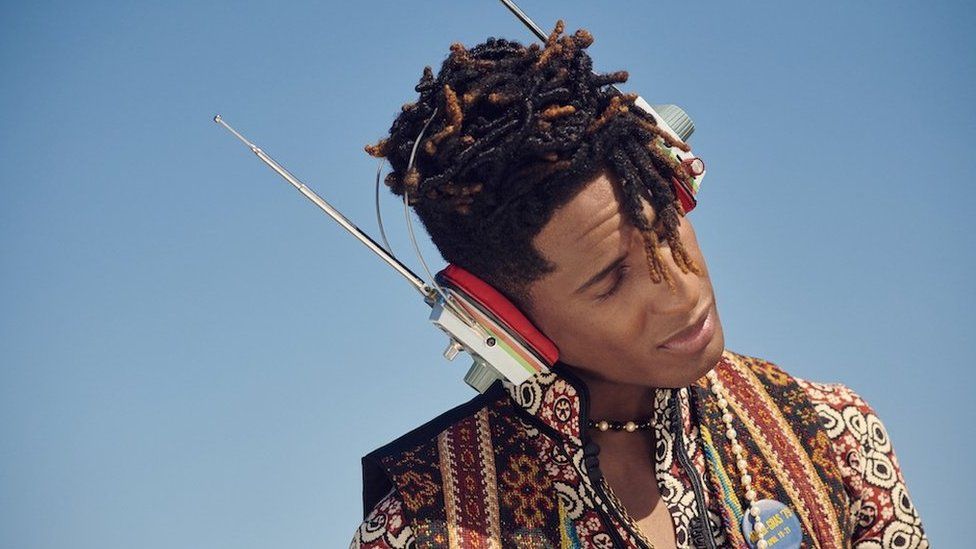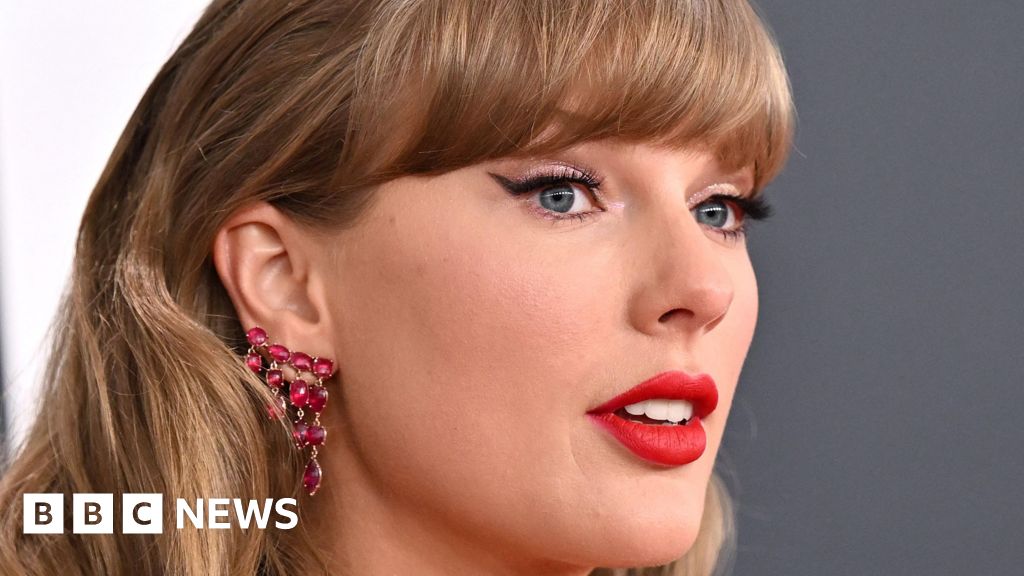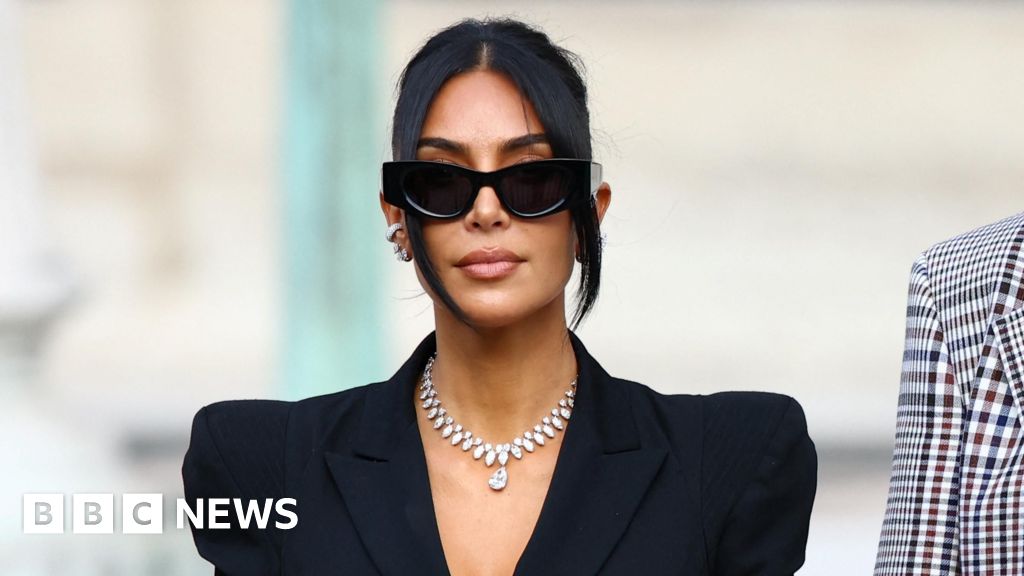ARTICLE AD BOX
 Image source, Emman Montalvan
Image source, Emman Montalvan
By Mark Savage
BBC Music Correspondent
In April 2022, Lenny Kravitz was reading out the nominees for album of the year at the Grammy Awards.
When he came to Jon Batiste's We Are, Billie Eilish and her brother Finneas turned to the musician and whispered: "We hope it's you."
Batiste took home the night's biggest prize, beating high-profile releases by Taylor Swift, Lil Nas X and Eilish herself - with a record that had virtually no commercial impact.
Voters at the Recording Academy were seduced by its hopeful message and its spiritual blend of soul, jazz, R&B, and hip-hop.
But critics called the decision "a huge misfire" that proved the Grammys were "out of touch with the real world".
And although Batiste was the first black artist to win best album in 14 years, one publication complained his music was not "at the forefront of this century's defining hip-hop and R&B sounds".
Surprisingly, the 36-year-old welcomed the debate.
"There's a question over how much we judge things based on the art, versus how much it was commercially successful - and a mix of opinions to sweetens the pot," he says.
"But if it's just, 'Oh, this music belongs over here, and that music belongs over there', I'm not with that.
"When that happens, we miss out on so much. We stagnate. Music all starts to sound the same."
This, it transpires, is his real obsession.
Reflecting on the Grammys, his proudest achievement wasn't winning album of the year, it was being nominated in seven different categories, including roots, R&B, jazz and classical.
"That was a first in history," he beams. "That speaks to the idea that genres don't exist and can be connected in ways that we've only just scratched the surface of exploring."
Image source, Jon Batiste / Instagram
Image caption,Jon Batiste picked up music at an early age
Batiste was exposed to all kinds of music from the moment he was born, in 1986, into one of New Orleans' largest musical families.
His father Maurice played bass for Jackie Wilson and Isaac Hayes, his uncle Harold worked as an arranger for Sam Cooke, and his cousin-twice-removed was avant-garde jazz clarinettist Alvin Batiste.
At the age of eight, he was playing drums with his relatives in the Batiste Brothers Band; and switched to piano aged 11 after his mother heard him picking out tunes from his favourite video games.
"She said, 'you should study classical music'," he recalls.
"So I had this really interesting mix of disciplines going on where I was self-taught on the drums and playing classical piano while living in New Orleans with its rich musical culture and its own hip hop scene. So I never really had one musical discipline from the start."
After high school, he won a place at New York's prestigious Julliard School, an experience he describes as a "culture shock".
"You come from the South in America and go into this very European classical, strict environment," he explains. "And once you're there, you re-audition every year, so you basically have prove yourself in order to stay in the programme."
He re-qualified enough times to attain a bachelor's and master's degree in classical piano. Today, he sits on the board of trustees - but he admits the school wasn't always a perfect fit.
The classical world was too closed off, he felt. His fellow pupils benefitted from "all this history and wisdom" and emerged with "incredible abilities", but they were only being heard by "connoisseurs".
"You acquire something that's like a jewel. It's a ruby. And, for me, I want to communicate with that. I want to take that [to] a space where it's not just ivory towers."
So when he wasn't studying, Batiste and his band Stay Human would charge through the streets and subways of New York performing what he called "Love Riots" - spontaneous, loose-limbed performances of Isn't She Lovely or You Are My Sunshine that sprinkled a little joy onto people's daily commute.
The idea was to take music back to its roots, "before it was commodified," he says, with performances were rooted in a black instrumental tradition of dance and community that still thrives in New Orleans.
Even on the notoriously aggressive streets of New York, it proved to be infectious. One performance on the Lower East Side attracted 300 onlookers, who had to be dispersed by police on horseback.
Image source, Getty Images
Image caption,Batiste and his band would serenade unsuspecting passengers on the New York subway
As Batiste's reputation grew, he was invited to play with Prince and championed by Quincy Jones. Field recordings of the Love Riots were turned into an album, Social Music, which topped the US jazz charts and, in 2015, he was hired as the musical director for Stephen Colbert's late night talk show.
The gig introduced him to millions - sketches like this musical stand-off with Weird Al Yankovic went viral - but with 200 shows a year, he was unable to tour or devote months to recording an album.
A turning point came in 2020. After the murders of George Floyd and Breonna Taylor, he held a series of solemn protests in New York, leading the audience in songs like We Shall Overcome and Lift Every Voice and Sing as they campaigned for police reform.
Those experiences fed directly into We Are (the title track incorporates a voice memo recorded at the protests) and it message of hope led to last year's Grammy victory.
That, in turn, brought him a new audience: We Are scored its best-ever chart position a week after the ceremony. A couple of months later, he left Colbert's show to concentrate on music.
Work on his new album, World Music Radio, began last August at Shangri-La, Rick Rubin's beachside recording studio in Malibu, California.
"You can live there and it's on the water and you can record any time you want," Batiste says, "so I basically created an environment where there were musicians coming in and playing music pretty much 24/7 for a month."
Inspired by his Grammy category sweep, Batiste incorporated even more genres into his sound, self-consciously dismantling the stigma surrounding world music.
"It's a fraught term that doesn't speak to all the plurality and incredible diversity that it should," he says.
And so the conveyor belt of talent in Malibu included K-pop quartet NewJeans, Colombian sensation Camilo, saxophone virtuoso Kenny G, Nigerian Afrobeats star Fireboy DML, Little Mix singer Leigh-Anne Pinnock and South African duo Native Souls.
The results shouldn't work as well as they do.
Image source, Interscope / Polydor
Image caption,Lana Del Rey has forged a unique musical connection with Batiste, with the artists appearing on each other's albums
Worship fuses samba rhythms with the club dynamics of Swedish House Mafia; Raindance effortlessly connects the dots between Afrobeats and reggae; and Uneasy sees Batiste and fellow Louisiana native Lil Wayne improvising over a New York boom-bap beat.
Batiste also pays tribute to his musical forebears, sampling Duke Ellington, Wayne Shorter and Quincy Jones on a track called Movement '18 (Heroes).
Jones, in particular, is a touchstone for Batiste, because his work with Michael Jackson had a similar disregard for convention, mixing rock and soul at a time when radio was segregated by genre.
"He's like Forrest Gump," Batiste says of the legendary producer. "He appears in history at all these critical moments, and is somehow right at the centre of it, shifting things forward. He's like a myth."
He's similarly in awe of Lana Del Rey - who joins him on the reflective ballad Life Lesson.
"When you create music, it's kind of like a relay race: You pass the baton to someone else who can run with the idea," he says. "But Lana has a way of creating where we can run at the same time.
"Because of that, it's just a spontaneous creative flow where you churn out a whole lot of material in a very short amount of time."
But the album's emotional centrepiece is a song that Batiste performs solo: A simple piano lullaby called Butterfly that he wrote for his wife, the author Suleika Jaouad, as she underwent treatment for an aggressive form of leukaemia last year.
"That song is deeply personal to my wife and our relationship and the things we've gone through," he says.
Jaouad previously told CBS News that Batiste's musical messages made it feel like "he was right there sleeping by my bedside" when Covid protocols meant he couldn't be with her in hospital.
The couple married last year, a day before she had a life-saving bone marrow transplant.
Image source, EPA
Image caption,Batiste says he intends to take the album on tour, with new guests musicians joining him in every city
Releasing such a deeply personal track illustrates Batiste's desire for music to provide connection and solace and inclusivity, even in the darkness.
"Love black folks and white folks," he sings on the multi-lingual, star-studded Be Who You Are. "My Asians, my Africans, my Afro-Eurasian, Republican or Democrat... You can only be who you are."
Such ebullient optimism might not put him "at the forefront" of musical trends... but that was never his intention.
"This album is directly connected to those concepts I was developing at Julliard and in the subways," he says.
"I wanted portals to open up and worlds to come together. That was when this was all born. So it's all connected."

 1 year ago
34
1 year ago
34








 English (US) ·
English (US) ·